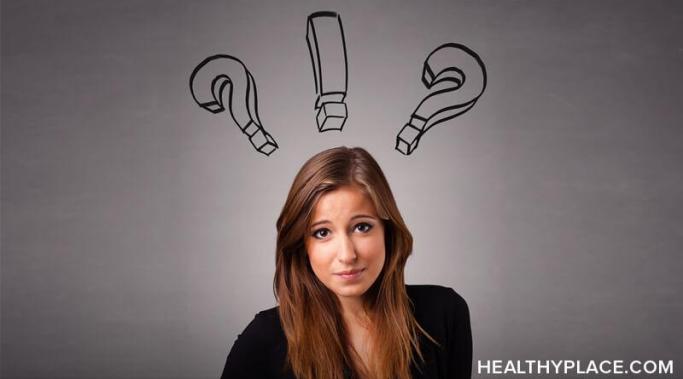There’s so much information online about the negative side effects of living with borderline personality disorder (BPD) and very little about BPD superpowers. Yep, that's right -- if you or someone you know has BPD, they, or you, probably have superpowers. In this article, I get into one aspect I love about my BPD-having self.
More than Borderline
Before I knew anything about borderline personality disorder (BPD) or antidepressants, I knew that pharmaceutical drugs were bad. Or, at least that's what I was told growing up. I learned from a young age not to trust therapists or doctors. Doctors wanted to poison your body, and therapists wanted to poison your mind. Why would I think that? Well, because then it would be easier for them to control you.
I tell myself that I write about borderline personality disorder (BPD) because I want to help others struggling with BPD and crisis, among other things. But, if I'm truly being honest here, I'm not writing to others — I'm writing to a former me. I'm writing to the me who spent hours Googling my behavior looking for answers. I'm writing to the me desperately seeking relief from my inner torment. I'm writing to a me I assume is long gone. This time, however, I want to write to a different me. This time, I want to write to the me that thinks she made it to the other side. I want to write to the me who pretends to have some kind of authority on getting through BPD. This time I want to write to today's me.
I recently went through a challenging period and didn't realize the seriousness of the events on my mental health until I physically reacted to my borderline personality disorder (BPD) symptoms. It's not uncommon that my body knows something is up before I do.
Living with the intensity of borderline personality disorder (BPD) feelings used to make me feel crazy. I could feel so sure someone was going to leave me, only to find out later there was nothing to worry about. For most of my life, I struggled to control my painful and embarrassing emotions. It wasn't until I started accepting my perception as truth that I began to feel more in control.
Learning to validate yourself is a powerful tool, especially for those of us with the ever-intense borderline personality disorder (BPD) emotions. I knew that the temptation to engage in maladaptive behaviors would still exist on my road to recovery. I did not, however, expect the extent to which I would learn to invalidate and essentially gaslight myself.
This article discusses splitting in borderline personality disorder (BPD). (This is also known as black-and-white thinking.) For me, splitting leads to paranoid thoughts, which are usually based on something to do with abandonment. When I become aware that I may not be seeing reality clearly, I start dissociating. Then, I get into a space where I don’t feel like I exist. That’s the bit I’d like to get into in this article: how splitting leads to dissociation and how I overcome it.
Did you know that neurodiversity includes borderline personality disorder (BPD)? Most people associate the term with autism or attention-deficit/hyperactivity disorder (ADHD). But, the scope of neurodiversity is much larger than that. The term is new in the mental health community and evolving quickly. However, while information on it is plentiful in the ADHD and autism world, there is surprisingly little information on neurodivergence concerning BPD. So, how does neurodivergence manifest in BPD?
Shame and borderline personality disorder (BPD) have gone hand in hand throughout my life. It contributed to the manifestation of almost every symptom, but I saw it most concerning identity and sense of self. Here, I talk about how shame and identity relate to each other in my experience living with BPD.
Mental health labels and humans go together like unicorns and glitter. Some see the union as innocent and natural. Others see a mystical creature that doesn’t exist and tiny pieces of plastic headed for the ocean. Labels can free you, and they can chain you.









